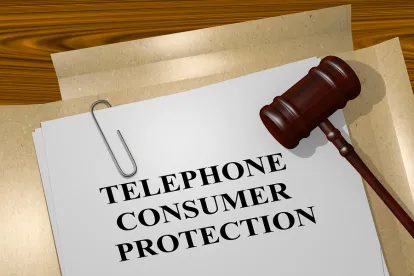The Eleventh Circuit last week issued a common-sense ruling vacating class certification in a TCPA case—an area of the law where common sense does not always prevail. In Cordoba v. DIRECTV, LLC, No. 19-12077 (11th Cir. Nov. 15, 2019), the named plaintiff claimed that DIRECTV violated the TCPA when Telecel, the company it had contracted with to provide telemarketing services, failed to maintain an internal “do-not-call list” of individuals who had requested not to receive telemarketing calls on behalf of DIRECTV. Cordoba sought to represent a class of all persons who had received more than one telemarketing call during the period of time that Telecel had failed to maintain a do-not-call list for DIRECTV. The district court certified the class, failing to consider that the class as defined would include many members—mostly members, potentially—who had never asked to be placed on the do-not-call list. Having never made this request, the Eleventh Circuit said, those members lacked standing because their injuries were not traceable to Telecel’s alleged failure to maintain the list. Furthermore, because distributing an award would require the district court to confirm whether a class member had a traceable injury, individualized inquiries predominated over common questions. The district court’s failure to consider these individualized questions of standing and predominance doomed its certification order.
Standing: Injury-in-Fact and Traceability
According to the Eleventh Circuit, receipt of more than one telemarketing call made in violation of the TCPA constitutes an injury-in-fact sufficient to satisfy that element of Article III standing. However, standing to sue requires not only a concrete injury but also an injury that is traceable to the defendant’s alleged violation. Named plaintiff Cordoba told Telecel to stop calling him, and thus would not have received further unsolicited calls if Telecel had maintained and honored a do-not-call list. Therefore, he had standing for his individual claim. By contrast, class members who had not made such a request would have received calls even if Telecel had maintained the list, and thus lacked an injury traceable to DIRECTV. “[T]he receipt of a call is not traceable to Telecel’s failure to comply with the internal do-not-call list regulations if the recipient wouldn’t have been on the list in the first place even if [the list] had been maintained.” Cordoba v. DIRECTV, LLC, No. 18-12077, 2019 WL 6044305, at *8 (11th Cir. Nov. 15, 2019). The Court therefore concluded that class members who failed to ask not to receive calls lacked Article III standing to sue DIRECTV.
Predominance
Next, the Court applied its standing decision to the Rule 23(b)(3) predominance analysis. The Court began this process by recognizing that, in its view, Article III does not preclude certification of a class that contains some unnamed members who lack a justiciable claim. “A properly defined class will often include uninjured class members, and that is not a problem that precludes class certification.” Id. at *10 (internal quote omitted). “[A] class should not be certified,” however, “if it is apparent that it contains a great many persons who have suffered no injury at the hands of the defendant.” Id. (emphasis in original). Certification of a class with too many potentially uninjured members shifts the focus of class proceedings from common questions that advance the entire action to individualized issues of standing.
Because class members’ ability to establish standing can sidetrack aggregated proceedings, it is a significant factor in Rule 23’s predominance analysis. When it appears that a large portion of a putative class lacks a justiciable claim, the district court must consider whether “individualized questions of standing will predominate over the common issues in the case.” Id. at 11. In the class proceeding that Cordoba proposed, the district court would need to determine whether each absent member suffered an injury traceable to DIRECTV before individual members could be provided relief, which would naturally require an individualized factual inquiry into which members asked to be placed on Telecel’s do-not-call list. “When this standing question is added to the mix,” the Court said, “individualized questions may predominate over common issues susceptible to class-wide proof,” making certification under Rule 23(b)(3) potentially inappropriate. Id. at *9.
Certification Order Vacated and Case Remanded
The Eleventh Circuit concluded that the district court abused its discretion by certifying the class without considering whether individualized questions of standing would overwhelm issues that were common to the members of the putative class. The Court vacated the district court’s certification order and remanded with instructions to perform a proper predominance analysis. The Court did not foreclose the possibility that the class could ultimately be certified, pointing out that the existence of a convenient and straightforward method for sorting class members with injuries traceable to DIRECTV from those without would allow the case to proceed without need for redefining the class. Without such a method, predominance fails because the question of traceability becomes a prominent individualized question. Even if a method is found, class certification would be inappropriate if the district court determined that many putative class members did not have a traceable injury, because the proposed class would be overbroad.
Traceability and the Defense to Class Certification
The Eleventh Circuit opinion is a welcome reminder that, for TCPA plaintiffs seeking class certification, showing that the defendant violated the TCPA is just the start and not the end of the task. Before a Rule 23(b)(3) class can be certified, the plaintiff must show not only that the defendant violated the TCPA, but also that at least the overwhelming majority of the class suffered an injury traceable to that violation. If that is not the case for many people in the putative class, and/or if individualized inquiries are necessary to sort out which class members were injured by the violation, the class should not be certified.




 />i
/>i

